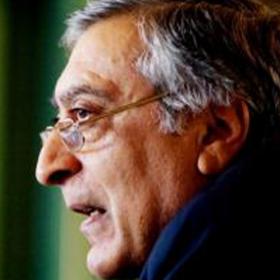
Strike the Right Balance on Nepal
Writing for India’s Mail Today, Kanwal Sibal, a former foreign secretary of India and a member of EWI’s Board of Directors, discusses the political and geographical challenges of the power balance between Nepal, India and China.
“As a country wedged between India and Tibet, Nepal has traditionally played the Chinese card against us,” Sibal writes. “No matter which government is in power there, to a lesser or greater degree our China problem with Nepal will remain.” There is a constant struggle between Nepal’s sovereignty and India’s expectations for cooperation, preventing a mutual relationship of trust: “The 1950 Treaty, the reality of the open border, the historical, cultural, linguistic and religious ties between the two countries underpin our expectations.”
As a result of the historically tumultuous relationship between the two countries, Nepal relies heavily on China, an issue of great concern to India with the rise of the Maoist party in Nepal. “In general, Nepal has been provocatively testing our China-related sensitivities and we have resorted to fire-fighting to counter its moves, without being able to reach a clear understanding on the self-restraint Nepal should voluntarily practice in its dealings with China out of a recognition of the particular nature and the depth of its ties with India.”
The surprising Maoist victory in Nepal’s 2008 election worried India, contributing to the rising tensions between these three countries. “The Maoists have constituted the most hostile force in Nepal toward India, backed in the past by the Palace to counter the Nepali Congress seen as pro-India,” explains Sibal.
Given those political developments, India will continue to wrestle with the dilemma of what to do about its neighbor. “How to find the right balance between engagement and non-intervention is a challenging task,” Sibal concludes.

